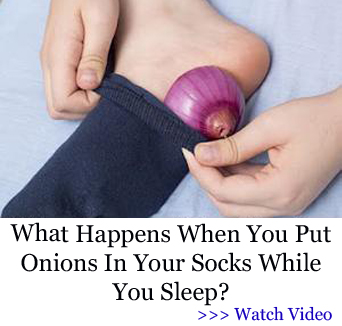Sweet Death, a term that refers to a sudden death during sexual intercourse. It can happen to anyone in any age group or sexual orientation, not exclusively to seniors. But it can happen to gay men often, especially if they use poppers (alkyl nitrites).
Some might argue that if there's any way to bow out of life, it would be during a moment of pure ecstacy. A culmination of living life to its fullest, where your last moments are filled with love, pleasure, and whatever you call, right?
But for the surviving partner, it’s obviously a deeply traumatizing experience. What started as a moment of shared joy can turn into a lifelong memory of sorrow. And of course, there’s the social stigma around it.
Sweet death is not a joke - anything could happen if you love feeling euphoria and pain at the same time. So what do you think?
Facts and Figures - 1
i. Cardiac Events:
Cardiovascular events are among the most common medical emergencies associated with sexual activity, especially in older individuals or those with pre-existing heart conditions.
It's estimated that sexual activity is associated with less than 1% of all acute cardiac events.
ii. Underlying Health Conditions:
Individuals with known heart disease, hypertension, or other significant health issues are at higher risk of experiencing a medical emergency during or after sexual activity.
People with cardiovascular diseases have a slightly higher risk during sexual activities, though exact percentages vary by condition and demographic factors.
iii. Sudden Cardiac Death:
A small percentage of sudden cardiac deaths may occur during sexual activity, but this is a rare event compared to other triggers.
Less than 0.2% of sudden cardiac deaths are reported to occur during or immediately after sexual activity, indicating the rarity.
iv. Risk Factors:
Risk factors increasing the likelihood of a health incident during sex include stress, excessive alcohol consumption, and the use of medications or illegal substances that affect cardiovascular function.
Comprehensive statistics on how stress or substance use specifically impacts incidents during sex are sparse, but these factors are known to increase cardiovascular strain.
v. Physical Exertion:
For most people, the physical exertion involved in sexual activity is comparable to mild to moderate physical activities like walking up two flights of stairs.
The metabolic equivalent (MET) for sexual activity ranges from 2 to 6 METs, akin to moderate physical activities.
Why Sweet Death Sneaks Up on Us
Sweet death sounds like a twisted romance novel, but it’s real—sudden death during sex, often tied to heart strain or funky combos like poppers. Middle-aged and older gay men might face this more because age sneaks in some wear-and-tear on the ticker, and let’s be real, the bedroom antics don’t always slow down. Poppers loosen you up and get the blood pumping, but they could also push an already taxed system over the edge. Here’s how to spot the risks and keep the party safe.
- Poppers hit hard when your heart’s already racing. They drop your blood pressure fast, and if sex has your pulse in overdrive, that dip could spell trouble. Think of a guy in his 50s, mid-thrust, sniffing that little bottle—his heart might just say, “Nope, I’m out!”
- Age piles on sneaky health gremlins. Years of living fabulously might leave you with high blood pressure or clogged arteries you don’t even clock. Some stud who’s been slaying it since the ‘80s could be one romp away from a cardiac curtain call.
- Booze and pills love to crash the party. Mixing poppers with alcohol or erectile dysfunction meds like Viagra is a recipe for a blood pressure nosedive. Picture a silver fox sipping whiskey, popping a blue pill, and huffing poppers—his system might just hit the eject button.
Now I'm no poet, and I sure want to make the most of every day, stay healthy, and stick around for a long time. I'd rather not bow out during sex with my partner. I bet a lot of you feel the same way, right?
With the risks getting higher as we grow older, let's talk about how we can steer clear of that "sweet death" situation.
Heart Matters
Sexual activity is a physical exercise, so your heart rate rises, hence increasing your blood pressure. If I care to break it down, that's because;
- Physical Exertion: During sex, your muscles are in play, you're burning some calories, and naturally, your heart pumps a bit faster to keep up with the demand.
- Emotional and Psychological Factors: The anticipation, intimacy, and sheer joy of the moment can give your heart rate a nudge.
- Hormonal Changes: Just as your morning coffee gives you that energy jolt, the hormones released during arousal get your heart going. It's all a part of the body's natural response to get you in the right mood and setting for intimacy.
- Orgasm: During the climax, the heart does a little sprint, bumping up its pace.
Now, as we age, our heart isn’t always up for spontaneous sprints or surprise dance-offs. Some seniors might have conditions like high blood pressure or heart blockages that make these moments a bit riskier.
Facts and Figures - 2
vi Prevalence:
Research indicates that sexual activity is a contributing factor in a very small percentage of acute cardiac events.
The actual percentage is low, with sexual activity not being a primary trigger for the majority of cardiac events.
vii. Age Consideration:
The risk of experiencing a medical emergency during sexual activity increases with age, particularly in men over the age of 50.
Risk levels increase with age, especially in individuals over 50, but comprehensive statistical breakdowns by age are complex due to varying health statuses.
viii. Medication Interactions:
The use of erectile dysfunction medications in combination with other medications, particularly nitrates, can increase the risk of adverse cardiovascular events.
Specific incident rates related to medication interactions are not widely published, highlighting the need for personalized medical advice.
ix. Preventive Measures:
Regular medical check-ups and managing cardiovascular risk factors can reduce the risk of adverse events during sexual activity.
While the effectiveness of these measures is well-documented in reducing cardiovascular risk broadly, specific statistics related to sexual activity are less commonly detailed.
x. Emergency Response:
Awareness and quick response to symptoms of a heart attack or stroke during sexual activity can save lives.
Immediate response can significantly increase survival rates in cases of heart attack or stroke, generally improving outcomes by more than 50% when CPR is administered promptly.
Get Real With Your Body’s Limits
Nobody likes a buzzkill, but knowing what your body can handle keeps you in the game longer. Age doesn’t mean you’re done—it just means you play smarter. Poppers and wild nights amplify the strain, so let’s figure out how to stay fierce without flirting with the reaper. Here’s the tea on tuning in to your fabulous frame.
- Check your ticker before you wreck it. A quick heart scan or chat with a doc can flag if your engine’s running on fumes. Some daddy in his 60s might strut into the clinic and find out his heart’s begging for a breather.
- Ditch the guesswork with a stress test. Docs can throw you on a treadmill to see how your heart handles a workout—sex included. Think of a guy huffing poppers at the club, only to realize his heart’s not vibing with the cardio chaos.
- Listen when your body screams “chill.” Shortness of breath or chest twinges mid-action aren’t cute—they’re red flags. One hottie might ignore that weird pang while railing away, only to regret not hitting pause.
Poppers 101: Sniff Smart or Don’t Sniff at All
Poppers are the glitter of gay sex—sparkly, fun, and a little messy if you overdo it. They relax muscles and give you that euphoric rush, but they’re not candy, darlings. Overuse or bad combos can turn a hot night into a flatline, so let’s spill how to keep it safe and sassy. Here’s the lowdown on sniffing with style.
- Space out those huffs like a pro. One quick whiff per session keeps the vibe without tanking your system. Some queen might be double-fisting bottles mid-orgy, but a single hit keeps him kicking.
- Skip the poppers if you’re on the little blue pill. Viagra and poppers together drop your blood pressure so low you might not bounce back. Imagine a stud popping sildenafil then sniffing amyl nitrite—his heart could clock out before he does.
- Stash that bottle away from the action. Spilling it or over-sniffing in the heat of the moment ups the risk. A guy might knock it over while riding the wave, soaking the sheets and his lungs—keep it capped and classy.
Pump the Brakes on the Booze
Liquor flows like gossip at a drag brunch, but it’s a shady accomplice to sweet death. Booze already messes with your heart and judgment, and tossing poppers into the mix is like daring fate to RSVP. Let’s keep the cocktails in check so the night doesn’t end with sirens. Here’s how to sip smart and stay alive.
- Cap it at one drink if poppers are in play. A single martini won’t tank you, but a bender could. Some bear might down three whiskeys then huff away, only to find his heart’s not here for the encore.
- Hydrate like it’s a runway walk. Water keeps your system steady, countering booze and popper chaos. Picture a twink chugging H2O between vodka shots—he’s strutting into sunrise, not stumbling into trouble.
- Say no to shots when you’re sniffing. Hard liquor hits fast, and paired with poppers, it’s a knockout punch. A guy slamming tequila then reaching for the bottle might wake up—or not—in the ER.
Facts and Figures - 3
xi. CPR Training:
Training in CPR and basic emergency response can be particularly valuable for individuals with known heart conditions or their partners.
Widespread CPR training is associated with improved outcomes in all cardiac emergencies, not just those related to sexual activity.
xii. Sexual Activity Frequency:
Studies suggest that regular, moderate sexual activity may have cardiovascular benefits for some individuals.
Regular, moderate sexual activity is associated with up to a 30% reduction in heart attack risk for some individuals.
xiii. Stress Reduction:
Engaging in consensual sexual activity can reduce stress and have positive effects on emotional well-being for many people.
Engaging in regular sexual activity has been linked to reductions in systolic blood pressure, though specific percentages vary among populations.
xiv. Health Communication:
Open communication with healthcare providers about sexual activity is important for managing health risks effectively.
The lack of open communication with healthcare providers can lead to underreporting and less effective risk management, though specific statistics are challenging to quantify.
xv. Mortality Rate:
The overall mortality rate associated with sexual activity remains low, especially in healthy individuals.
The overall mortality rate directly attributable to sexual activity is extremely low, reinforcing the rarity of such events.
Sweat It Out Before You Get It On
Fitness isn’t just for flexing in the mirror—it’s your shield against sweet death. A strong heart handles sex and poppers better, so let’s get that blood pumping the right way. You don’t need to be a gym bunny, just savvy enough to prep your body. Here’s how to werk it without breaking a sweat over survival.
- Walk it off daily to keep the ticker ticking. Thirty minutes of strutting builds stamina for the bedroom and beyond. Some silver fox might sashay around the block, dodging a heart hiccup mid-hookup.
- Lift light weights to boost the beat. A few dumbbell curls strengthen your core and cardio game. Think of a daddy curling tens at home, ready to ride without risking a collapse.
- Stretch those limbs for flexibility and flow. Yoga or basic stretches keep blood moving smooth. A guy hitting downward dog might breeze through a popper-fueled night, no crash in sight.
Plan Your Playtime Like a Boss
Spontaneity is hot, but a little strategy keeps sweet death off the guest list. Middle-aged and older queens deserve epic nights without the grim reaper photobomping. Poppers and sex can coexist if you plot the scene with some sass and sense. Here’s how to run the show and keep it fabulous.
- Set a chill vibe before the heat kicks in. Low lights and slow jams ease your heart into the action, not a sprint. Some stud might dim the LEDs and cue up Sade, letting his pulse stay steady even with a sniff.
- Time your poppers for the cooldown. Save the huff for after the peak, when your heart’s not maxed out. A guy might wait till he’s catching his breath post-climax to pop that cap—safe and sultry.
- Keep a wingman in the loop. A trusted pal knowing your night’s vibe can spot trouble fast. Picture a bear telling his buddy, “I’m popping tonight—watch me,” so someone’s got his back if shit hits the fan.
I Can't Get It Out! What Should I Do?
Now let's talk about one of those "I never thought this would happen" moments.
What do you do if you find yourself in the middle of an intercourse and your partner suddenly becomes unconscious? You've both taken a Viagra or two, so he's still in you, and you cannot get it out!
Let’s gently wade through this tricky situation together.
1. Don’t Panic - Breathe!
First off, take a deep breath. We know it's easier said than done, but keeping your wits about you is your best friend in this situation. Panicking can make the situation feel ten times more challenging.
2. Gentle Movements
Try slowly shifting your position or gently moving to see if there's a way to disengage without causing harm to either of you. Patience and gentleness are your allies.
3. Use a Lubricant
If you have a lubricant at hand, this might be a good time to use it. Gently applying it might help in easing things out without causing discomfort to either of you.
4. Can You Wake Him Up?
Gently tap him, talk to him, or squeeze his hand. If he shows signs of waking up, keep talking to him in a calm and reassuring voice. Let him know what happened.
5. Wait a Moment
Sometimes, the body can tense up, especially if there's stress or surprise. Give yourselves a few minutes to relax. As the body eases and your anus is relaxed, you can slide it out naturally.
6. Stay by Their Side
Even if you manage to disengage, stay with your partner. Make sure they’re lying on their side in a safe and comfortable position. This is called the recovery position and helps keep their airway clear. If they don't regain consciousness quickly or show signs of distress, you really should consider getting medical help.
7. When in Doubt, Dial Out
If you're ever unsure about your partner's health or safety, it's always better to be safe and call for help. Your well-being and your partner's health are paramount. Never be embarrassed, because from a medical professional's point of view, it's "just" a risk of sweet death. They've seen thousands of incidents worse than that.
8. CPR to the Rescue
If you know CPR and your partner isn't breathing, it might be time to put those skills to use while waiting for the ambulance. If you're unfamiliar with CPR, consider taking a course. It's a handy skill that can come in useful in many situations.
Facts and Figures - 4
xvi. Public Health Education:
Education on safe sexual practices and awareness of potential risks is crucial, particularly for individuals with cardiovascular disease.
Effective education can lead to better sexual health outcomes, though direct statistics on the impact of education on mortality during sexual activity are not widely reported.
xvii. Lifestyle Factors:
A healthy lifestyle, including regular exercise and a balanced diet, can reduce the risk of adverse events during sexual activity.
Adhering to a healthy lifestyle can reduce the risk of cardiovascular disease by up to 80%, indirectly affecting the safety of sexual activity.
xviii. Research Gaps:
There is a need for more comprehensive research into the causes and risk factors of sudden death related to sexual activity.
The need for more data is recognized across sexual health research, including the epidemiology of acute events during sexual activity.
ix. Global Perspective:
Cultural, legal, and healthcare access differences affect the reporting and understanding of deaths related to sexual activity worldwide.
Variations in reporting standards and healthcare systems worldwide complicate the global understanding of these incidents.
xx. Safety First:
Taking precautions, understanding personal risk factors, and having a plan in case of emergency are key to minimizing risks during sexual activity.
The general advice for minimizing risks emphasizes the importance of understanding personal health status, which can significantly mitigate potential risks associated with sexual activity.
When to Call It a Night
Even the fiercest hunks know when to bow out gracefully. Pushing past your limit with stamina is how sweet death snags its prey. Learn to read the room—aka your body—and exit stage left before it’s curtains. Here’s the scoop on clocking out with flair.
- Bounce if your chest feels funky. Any weird tightness or pain means the party’s over, no debate. Some king might feel a squeeze mid-thrust and wisely roll off to dial 911.
- Quit when the room spins too hard. Poppers can dizzy you up, but if it’s blackout-level, stop. A guy might wobble after a huff, decide he’s done, and crash on the couch instead of the floor.
- Tap out if you’re gasping like a fish. Can’t catch your breath? Sex and poppers need to wait. Think of a hottie panting hard, choosing to chill with a glass of water over risking it all.
Wrap-Up: Live Fierce, Not Fatal
Sweet death doesn’t have to haunt your fabulous nights, darlings. Middle-aged and older gay men can slay the bedroom scene by keeping it real with their bodies, sniffing smart, and pacing the wildness. Stay fierce, stay safe, and let’s keep the grim reaper waiting in the wings. You’ve got this—now go work it without the blackout!








Wow. Reading about sweet death was both eye-opening and sobering. As someone who has enjoyed the occasional use of poppers, I hadn't fully grasped the potential dangers, especially as I get older. The idea that a moment of pleasure could turn fatal is terrifying. This article has prompted me to reconsider my choices and prioritize my health. It's a stark reminder that we need to be more aware of how our bodies change with age and the importance of regular medical check-ups.
While the article sheds light on the risks associated with "sweet death," particularly among gay men using poppers, it could benefit from a more nuanced discussion. The focus on poppers and their cardiovascular effects is valid; however, the piece might overemphasize this aspect without considering other contributing factors, such as overall lifestyle, mental health, and access to healthcare.
A broader perspective would provide a more comprehensive understanding of the issue and avoid inadvertently stigmatizing specific behaviors within the gay community.
Well, that's one way to go out with a bang! But in all seriousness, the concept of "sweet death" is both fascinating and frightening. Who knew that our hearts could be such drama queens, deciding to exit stage left during our most intimate moments? This article is a wake-up call to keep an eye on our health and maybe not mix poppers, booze, and bedroom gymnastics like we're still in our twenties.
So personal and sensitive issue,,, If you have experienced the sudden loss of a partner during intimate moments, the trauma is unimaginable. This article brings necessary attention to the importance of understanding the risks associated with sexual activity, especially as we age. It's a compassionate reminder to care for our health and to support each other in making informed decisions. Let's foster open conversations about these risks to ensure our intimate moments remain safe and joyful.
Many thanks for your comments.